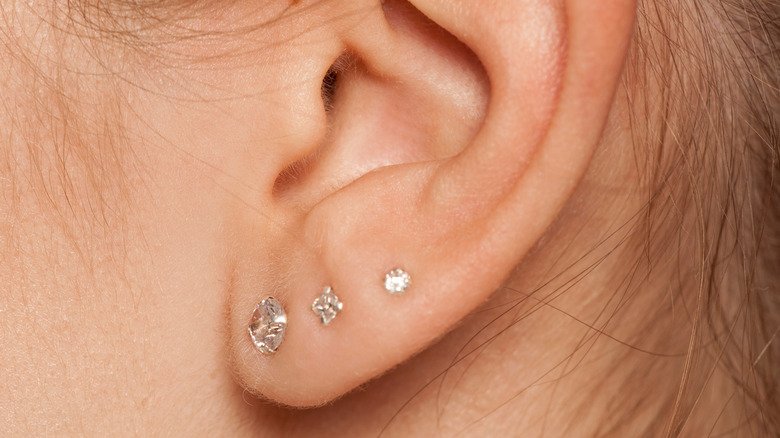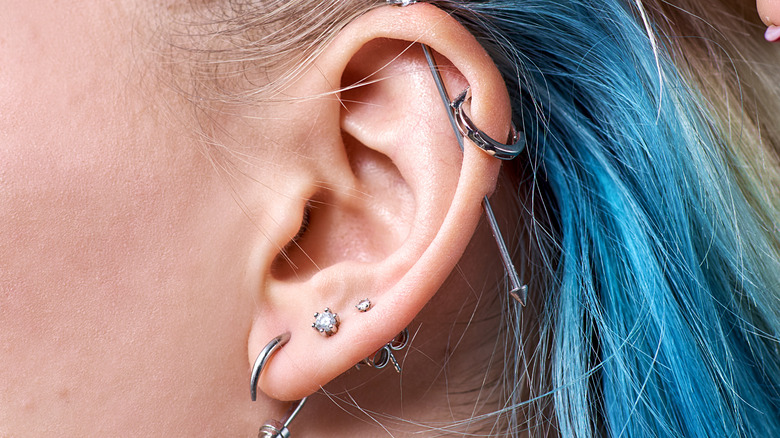How Long Does It Take For A Piercing To Close?
There are numerous reasons why a person may want to take out a piercing. They may get a new job with a restrictive dress code or their style may change. Some may want to let old piercings close so they can have a new piercing in a similar location. For those with dress codes and style changes, they might simply want to remove the piercings for a short period of time. People who want to move the piercings, on the other hand, likely want the hole to close permanently.
In either case, people who remove piercings are playing with time. And as Chronic Ink Tattoo explains, there are a lot of factors that can impact how much time it takes for a piercing to permanently close, while some piercings may not close at all. These factors range from the length of time the piercing has been extant to where the piercing is located. For the most popular types of piercing, Chronic Ink Tattoo notes that newer piercings will close up faster. Those in the ears, navel, and nipples may close up within a day. Piercings in the nose, especially those through the side of the nostril, can close up within hours as the mucus membrane inside the nose works to repair something the body considers a wound.
Location of a piercing matters
Chronic Ink Tattoo goes on to explain that once a piercing fully heals — a process that can take anywhere from six months to a year for full healing, regardless of piercing location — it usually takes longer to close. Some piercings may not close at all, as Ryan Ouellette explained to Bustle. Ouellette owns Precision Body Art and is a member of the Association of Professional Piercers. Piercings, he explained, heal from the outside in. As they heal, the body covers the piercing channel with skin, creating a fistula. Fistulas, generally speaking, are connections between any two organs or blood cells that wouldn't normally exist (via National Association for Continence). With piercings, this channel is the route created by the piercer's needle or gun.
Once the fistula has formed, Chronic Ink Tattoo explains that a piercing may still never close. The location of the piercing can also affect the time and the way it closes. Navel and nose piercings, for example, may simply become smaller. Lobe piercings may remain long after the person stops using them. Cartilage piercings may close over on the surface, while the hole remains through the cartilage beneath. Additionally, the larger the gauge of the piercing, the longer it will take to heal.


